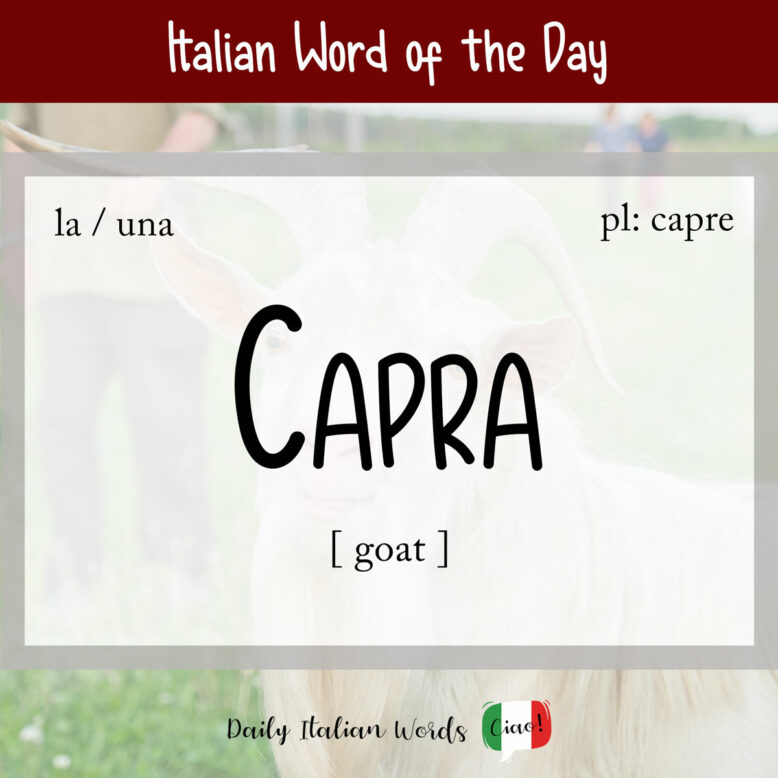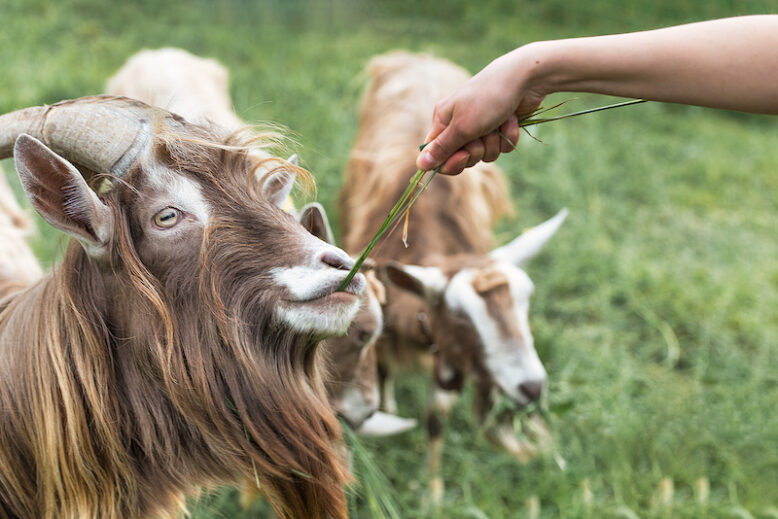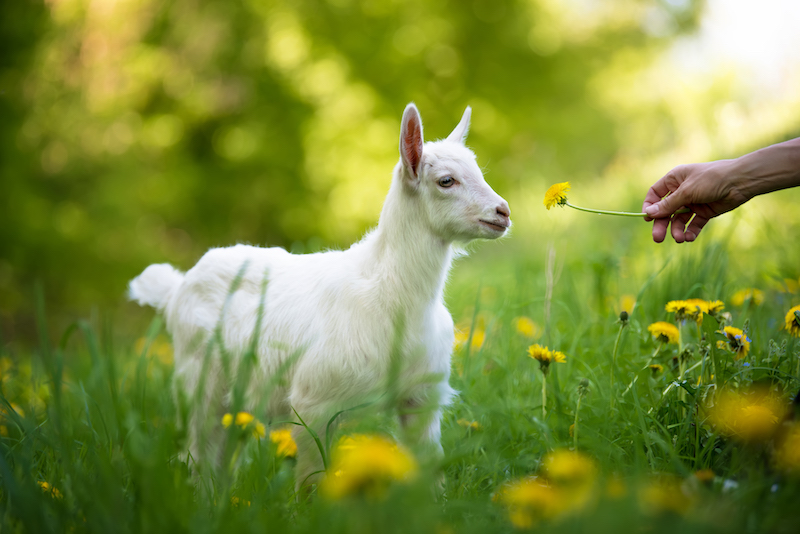Last week, we took our son to a county fair, where a variety of farm animals were on display. The goats—known as capre in Italian—were the most eager of them all. They were so enthusiastic to eat from my son’s hand that they accidentally nipped his fingers. Needless to say, he has been keeping his distance from capre ever since!
capra
goat

If you have trouble remembering the word, try associating it with the star sign Capricorn. In Italian, Capricorn is Capricorno, and the sign is symbolised by a goat. Note that capricorno also means serow, which is the term used for any of the four species of medium-sized, goat-like or antelope-like mammals in the genus Capricornis.
Here are the definite and indefinite articles that go with this feminine noun:
- la capra = the goat
- una capra = a goat
- le capre = the goats
- delle capre = some goats
Capra comes from the Latin capra, which is the feminine form of caper, the word for a buck or billy goat. In standard Italian, a male goat is called a capro or a becco. Because capra is feminine, it can also be translated as nanny goat. Goats are generally looked after by a goat herder, which is capraio in Italian.
When talking about a young goat, or kid, you can use the masculine diminutive form capretto. It is also the word for goat meat.

Goats provide us with a variety of products that we use and enjoy in our daily lives, such as formaggio di capra (goat cheese), carne di capra (goat meat), latte di capra (goat milk), and pelle di capra (goat skin).
Le capre stanno brucando l’erba.
The goats are grazing on the grass.
In many countries around the world, people prefer goat milk over latte di mucca (cow milk). Not only is it thicker and creamier, but it also contains more nutrients, is easier to digest, promotes better heart health, and is less likely to cause an allergia al latte (milk allergy).
Figuratively speaking, calling someone a capra suggests that they are uncouth or ignorant.
Tu sei proprio una capra!
You are a real ignoramus!
Interestingly, the word scapegoat has an Italian equivalent that also involves goats – capro espiatorio – with espiatorio meaning of atonement.
Did you know that…
…the name of the island of Capri might actually be linked to goats? Some etymologists believe the name originates from the Greek word kápros, meaning wild boar, while others suggest it could derive from the Latin capreae, meaning goats. (Source: Etymonline)
If you’re eager to learn a popular Italian scioglilingua (tongue-twister), why not give this goat-themed one a try?
Sopra la panca la capra campa,
sotto la panca la capra crepa.
Above the bench the goat lives,
below the bench the goat dies.
Let’s wrap up this article with a cute children’s song called Capra Capretta (Goat Little Goat). Even though it’s a nursery rhyme, it can help you learn some useful vocabulary related to goats.

Idiomatic expressions featuring ‘capra’
Arrampicarsi come una capra
Literal translation: to climb like a goat
English meaning: to climb like a goat, to be very agile
Ignorante come una capra
Literal translation: to be ignorant like a goat
English meaning: to be as dumb as an ox
Salvare capre e cavoli
Literal translation: to save goats and cabbages
English meaning: to find a compromise or successful resolution that satisfies two opposing parties
Heather Broster is a graduate with honours in linguistics from the University of Western Ontario. She is an aspiring polyglot, proficient in English and Italian, as well as Japanese, Welsh, and French to varying degrees of fluency. Originally from Toronto, Heather has resided in various countries, notably Italy for a period of six years. Her primary focus lies in the fields of language acquisition, education, and bilingual instruction.


